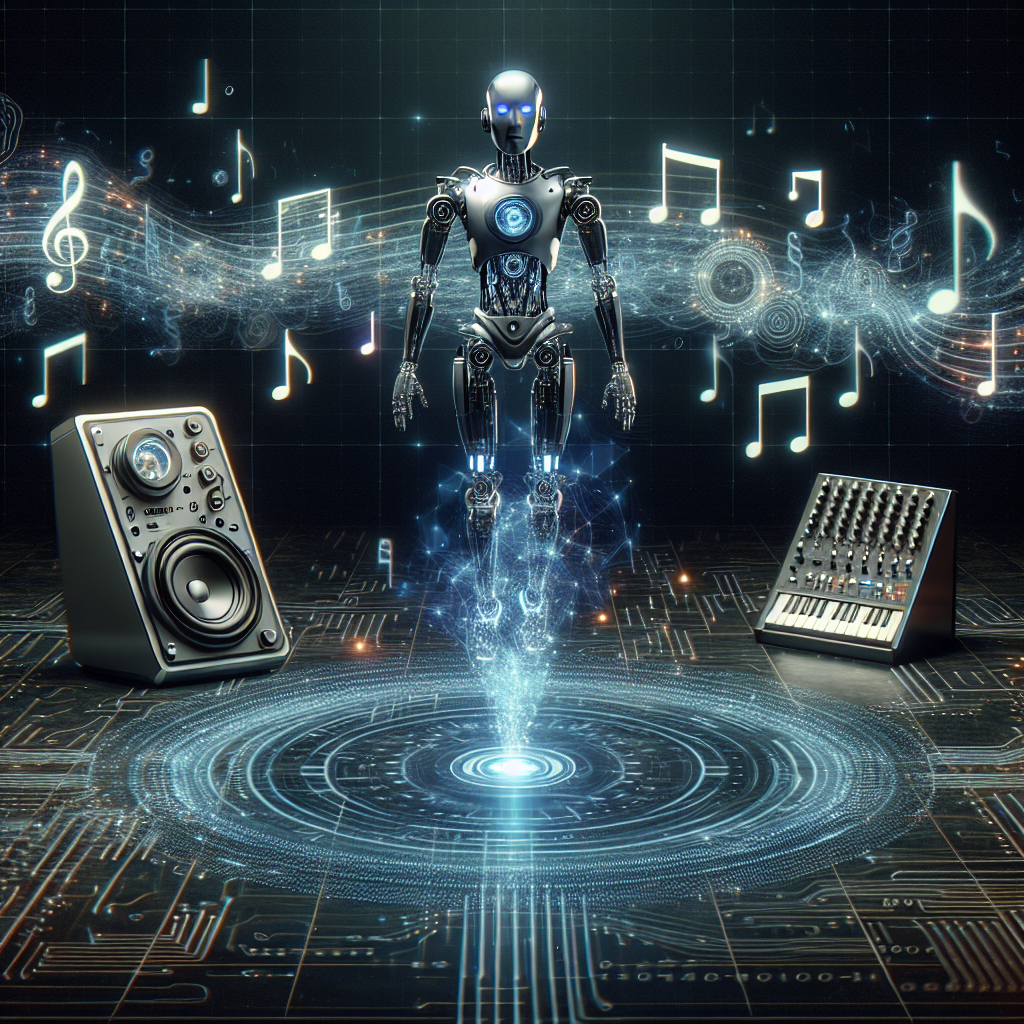Artificial Intelligence (AI) is rapidly shaping the future of music technology in ways that were once thought to be impossible. From creating new sounds and compositions to assisting in music production and distribution, AI is revolutionizing the music industry in ways that are both exciting and controversial. In this article, we will explore the impact of AI on the future of music technology and discuss the implications for musicians, producers, and music consumers.
AI and Music Creation
One of the most significant ways that AI is changing the music industry is through its ability to create new sounds and compositions. AI algorithms can analyze vast amounts of music data and generate new melodies, harmonies, and rhythms that are both innovative and compelling. This has opened up new possibilities for musicians and producers to experiment with unique sounds and styles that were previously inaccessible.
For example, companies like Amper Music and AIVA are using AI to create original music compositions for a variety of purposes, from film scoring to advertising. These AI-generated compositions are indistinguishable from those created by human composers, leading to questions about the role of AI in the creative process.
AI is also being used to assist musicians in the composition process. Tools like Google’s Magenta and IBM’s Watson Beat can analyze a musician’s input and generate musical ideas that complement their style and preferences. This can help musicians overcome creative blocks and explore new directions in their music.
AI and Music Production
In addition to creating new music, AI is also transforming the way music is produced. AI algorithms can analyze audio recordings and automatically detect and correct errors in timing, pitch, and tone. This can save musicians and producers valuable time and effort in the recording and editing process.
AI is also being used to automate tasks like mixing and mastering, which are traditionally done by human engineers. Companies like LANDR and iZotope are using AI algorithms to analyze audio tracks and apply processing techniques to improve the overall sound quality. This can help musicians and producers achieve professional-sounding results without the need for expensive studio equipment or technical expertise.
AI is also being used to personalize music recommendations and playlists for consumers. Streaming services like Spotify and Apple Music are using AI algorithms to analyze user listening habits and preferences and recommend music that is tailored to their individual tastes. This can help music fans discover new artists and genres that they may not have otherwise encountered.
FAQs
Q: Can AI replace human musicians and composers?
A: While AI technology has made great strides in creating music, it is unlikely that AI will completely replace human musicians and composers. AI is a tool that can assist musicians in the creative process, but ultimately, the human element of music – emotion, intuition, and expression – cannot be replicated by machines.
Q: How does AI impact copyright and ownership in music?
A: The use of AI in music creation raises questions about copyright and ownership. When AI algorithms generate music compositions, who owns the rights to the music? This is a complex legal issue that is still being debated in the music industry. In general, the person or company that owns the AI technology may own the rights to the music created by that technology.
Q: How can musicians and producers adapt to the changing landscape of the music industry?
A: Musicians and producers can adapt to the changing landscape of the music industry by embracing AI technology as a tool to enhance their creativity and productivity. By learning how to use AI tools in their music production process, musicians can unlock new possibilities for their music and reach a wider audience.
In conclusion, AI is revolutionizing the music industry in ways that are both exciting and challenging. From creating new sounds and compositions to assisting in music production and distribution, AI is reshaping the future of music technology in ways that were once thought to be impossible. Musicians, producers, and music consumers must adapt to the changing landscape of the music industry and embrace AI as a tool to enhance their creativity and productivity. The future of music technology is here, and AI is leading the way.

